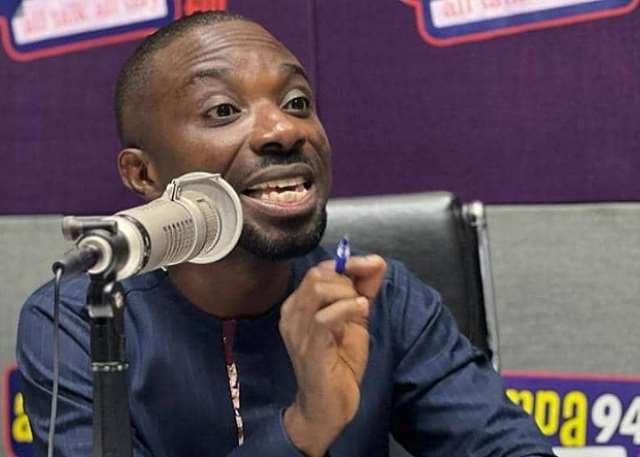The ongoing prosecution of Kwabena Adu-Boahene, the former Director-General of the National Signal Bureau (NSB), has sparked a debate about the intersection of law and politics in Ghana’s legal system. Dennis Miracles Aboagye, a communication team member of the New Patriotic Party (NPP), has publicly criticized the Attorney General, Dr. Dominic Ayine, for what he perceives as an overly politicized approach to the case. Aboagye’s central argument revolves around the Attorney General’s decision to hold a press conference detailing the allegations against Adu-Boahene, a move Aboagye believes prejudiced public opinion against the accused before the court had even begun its proceedings. This preemptive public condemnation, according to Aboagye, undermines the fundamental principle of “innocent until proven guilty” and could irrevocably damage Adu-Boahene’s reputation, regardless of the final verdict.
Aboagye’s concerns highlight a broader tension between the pursuit of justice and the potential for political grandstanding. While acknowledging the importance of addressing alleged wrongdoing, he argues that the legal process should not be used as a platform for political theatre. He contends that the Attorney General’s actions, particularly the public airing of accusations, create a perception of guilt even before the court has had an opportunity to examine the evidence and hear the defense. This approach, Aboagye suggests, risks transforming the legal system into a tool for scoring political points rather than a neutral arbiter of justice.
The case against Adu-Boahene revolves around allegations of financial malfeasance, including fraudulent contracts and payments totaling over GH¢49.1 million (approximately $7 million at the time). The Attorney General alleges that these funds were siphoned through various companies linked to Adu-Boahene and his wife. The charges levelled against them include stealing, defrauding by false pretences, causing financial loss to the state, money laundering, and using a public office for profit. The gravity of these charges underscores the importance of ensuring a fair and impartial legal process, one that is devoid of political influence or pre-judgment.
Aboagye’s criticism of the Attorney General’s handling of the case focuses on the potential for reputational damage caused by pre-trial publicity. He argues that the public pronouncements made by the Attorney General effectively painted Adu-Boahene as guilty before he had a chance to defend himself in court. This, Aboagye maintains, creates a lasting stigma that can be difficult to erase, even if the accused is ultimately acquitted. He emphasizes the importance of upholding the presumption of innocence and allowing the legal process to unfold without undue external influence.
The heart of Aboagye’s argument rests on the principle that justice should not only be done but also be seen to be done. He contends that the Attorney General’s actions, particularly the press conference, compromise the perceived impartiality of the legal proceedings. This undermines public trust in the justice system and raises concerns about the potential for political motivations to overshadow the pursuit of truth and fairness. Aboagye’s call for a more measured approach emphasizes the need to separate legal proceedings from political posturing.
In essence, the Adu-Boahene case has become a focal point for a larger discussion about the delicate balance between upholding the rule of law and navigating the complexities of political dynamics. Aboagye’s critique serves as a reminder that the pursuit of justice requires not only diligence in investigating and prosecuting alleged wrongdoing but also a commitment to protecting the fundamental rights of the accused, including the presumption of innocence and the right to a fair trial. The case underscores the importance of ensuring that the legal process remains independent and impartial, free from the influence of political pressures and pre-judgment. The ultimate test will be whether the judicial system can effectively navigate these competing pressures and deliver a verdict based solely on the evidence presented, upholding the principles of justice and fairness.














